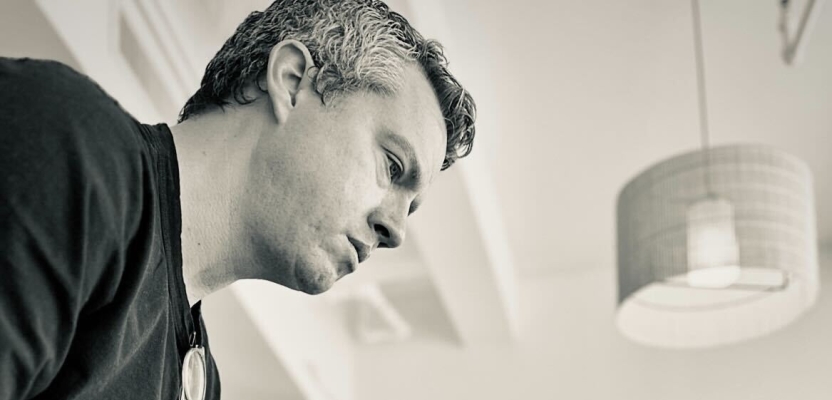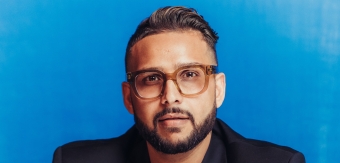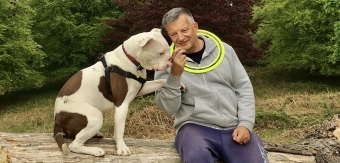This week, we’re thrilled to sit down with Bo Bishop, Executive Director of Creative Strategy at Sibling Rivalry, whose approach to blending strategy with storytelling has made waves in the branding world. With a background in narrative fiction and filmmaking, Bo brings a unique perspective to creative strategy, championing the importance of foundational strategy as invaluable intellectual property.
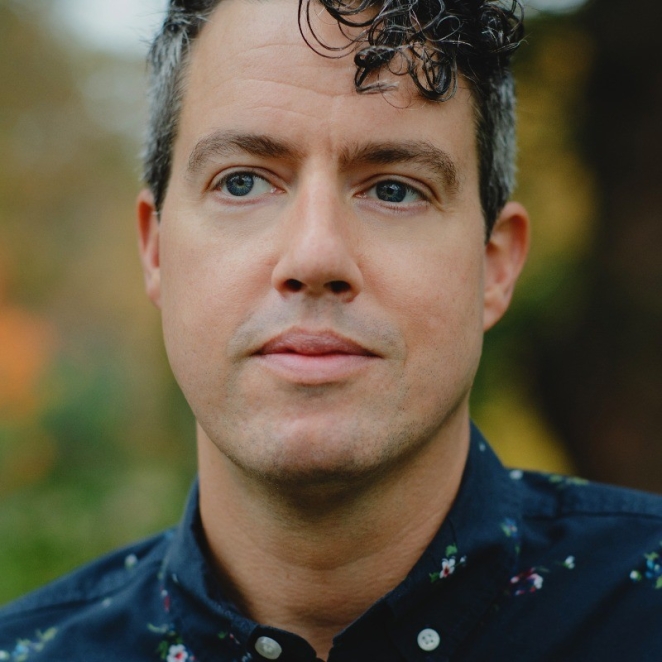
From his daily rituals that spark creativity to his passion for building empathetic brands, Bo shares insights on navigating and leading in an industry where thinking outside the box is more than a mantra—it’s a way of life. Dive in as Bo takes us through his journey, highlights the role of cognitive science in his creative process, and reveals his vision for the future of branding.
Tell us a bit about your role! Is there a “typical” day?
I wake up, walk two miles to the gym, do something insane there that I definitely do not want to do (shoutout to CrossFit South Brooklyn!), then walk two miles back with a coffee. For me, this is crucial thinking time. I’m a big proponent of thinking and walking, because bilateral stimulation has been proven to improve cognitive functions and enhance creativity (shoutout science!).
My role as a creative strategist requires thinking and making in tandem, and my practice is always better if I can fire up those systems, get some endorphins flowing, and of course guzzle enough caffeine to stay chipper through it all. By the time I sit down at my desk at home or the office, I’ve already formulated a game plan and the ideas are coming into focus. If I can wake up early enough to make this happen, the rest of my day seems to fall into place.
What was the biggest challenge in getting to your current position?
As a writer and strategist, I honestly haven’t faced much “competition” in my industry, so to speak. Traditionally, branding is very much a design-driven exercise, in that the deliverables many clients care about the most are tangible and visual: logo, color, typography, iconography, etc. I mention that because I’ve observed designers, art directors, animators, etc. facing more hurdles in advancing their careers in our industry.
I’ve somewhat lucked into a role that’s rare – creative strategy for brands in entertainment, media, technology, and culture. A small number of people do that specific thing; I know because I would love to hire more of them and they’re hard to find. The largest challenge I’ve personally faced is convincing clients that excellent and elastic foundational strategy is invaluable IP.
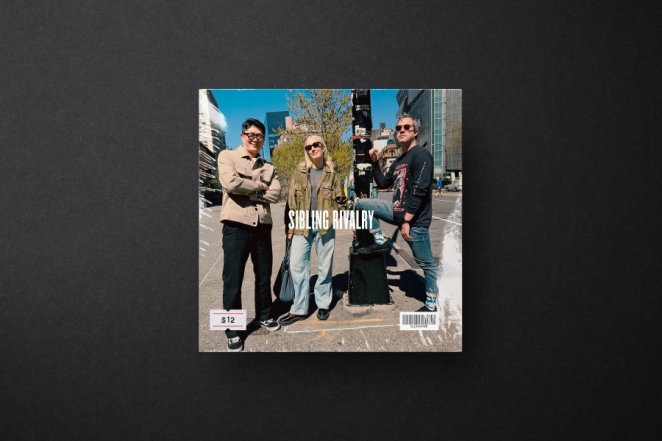
The most enduring and iconic brands in the world heavily invest in defining, owning, and defending a distinct positioning. Articulating the specifics of that positioning is an artform worth nurturing and fussing over as much as a visual identity or campaign.
What is your personal background and what role did it play in your career?
I’ve never taken a marketing, branding, or strategy course. My background is in narrative fiction and filmmaking. I got into this field when I was hired by the agency loyalkaspar to write a short film for Nokia. There, I met Lee Hunt, a legendary strategist known for transforming media and entertainment brands.
Working with him and watching him unlocked a passion for strategy grounded in storytelling, emotion, and belonging. I very much consider myself a writer; writing is my superpower, and I try to integrate narrative techniques and rhythms in my process.
What is your biggest career-related win? What is your biggest loss?
I’ve been lucky enough to work with so many amazing brands – Apple, Disney, Audible, Marvel, National Geographic – but two projects stand out as favorites: I spent a few years building the strategy and messaging for The New York Rangers, and seeing my work on the jumbotron at Madison Square Garden before a game… I still get goosebumps thinking about it.
The second is articulating the positioning and leading the brand identity development for Mixteca, a small but mighty immigrant rights nonprofit based in Brooklyn. You rarely get to see that kind of immediate impact on an organization, and the identity has been embraced by the community in ways that go way beyond what I imagined while we were working.
As far as losses are concerned, it may sound corny, but I don’t believe in them. Things happen or don’t and you move on. There’s always something else to do or learn or think about or pursue. Too many agencies get caught up in winning or losing when the reality is, the work itself is the reward. I think I’m a bit of a sculptor, in that regard. I’m interested in the process, because that’s the only thing in my control.
Which individuals and/or agencies do you gain inspiration from? Do you have any heroes in the industry?
Lee Hunt, for sure. He’s been such an inspiration and cheerleader for me. Daniel Dörnemann, the ECD at loyalkaspar, was my partner in crime for many years and taught me so much about the art of presenting. Alex Moulton, the CCO at Trollbäck+Company, taught me to be perpetually optimistic without getting saccharine about it. I learned a lot from him about fostering a “yes and” culture of generous collaboration.
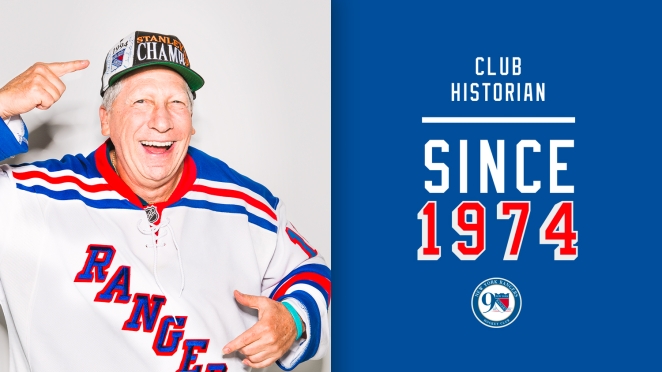
And I’ve been such a huge fan of Joe Wright and Mikon van Gastel, the co-founders of Sibling Rivalry, that getting to work with them now feels like unlocking a whole new gear of my career. Outside of people, the greatest inspirations of my life have been movies, music, and books. I get really inspired by creative work that surprises me.
What advice would you give to your younger self?
Don’t focus on negativity and don’t stress about things beyond your control. Have fun, enjoy life, stay curious, and always work to make other people’s ideas better.
If you weren’t in your current industry, what would you be doing?
Writing novels.
What’s your one big dream for the future of the industry?
Less branding and marketing that preys on our anxieties and prioritizes empathy. Marketers learned a long time ago that pulling the lever of fear and unease is a cheat code for selling products – but it’s also so clearly unhealthy. Brands have tremendous power, and I feel a responsibility to help build cultures that prioritize treating each other with dignity and respect.
What are your top tips for aspiring creative professionals?
Diversify your skill set! This is crucial. You can make yourself irreplaceable by doing things others can’t. Always strive to be additive and keep learning new things. If you’re a great designer, spend time learning how to write. If you’re a great writer, spend time learning about design. People who are multifaceted spend less time getting pigeonholed and get more opportunities to shine.
What are your top tips for other creative leaders?
Strive to create a culture of openhearted curiosity, because great work seldom comes from a place of fear. If your team is afraid their ideas will get shot down, they’re less likely to share them and the whole process suffers. And never criticize a presentation right before it happens, even if you have concerns. Instill confidence and pivot when there’s less pressure.
When you think about your team, what is the thing that matters to you the most?
Enjoy the work and each other. We spend so much of our life with our coworkers, if we’re not having fun and feeling inspired, what’s the point? I consider this work to be such a privilege; we get to make believe for a living while others experience so much real stress and pressure. If we’re enjoying our work, chances are our clients will too.
How do you approach collaboration with other creatives or teams and what do you believe makes for successful partnerships?
Trust is essential. Great work cannot happen when teams don’t trust each other. If I trust you and you trust me, we have an understanding that we have the freedom to play, try things, make mistakes, get weird and interesting. Also, every successful collaboration in this industry is a marathon, not a sprint. You need to maintain energy and know that there will be moments where it feels uncertain or more like work. That’s okay. Keep running.
What industry trends do you foresee taking hold in the coming months?
I think the pandemic, interestingly enough, forced brands – or maybe afforded them the opportunity, to use a more positive framing – to take a step back and invest in rethinking their positionings or foundational strategies, because everything else came to a halt. I’ve noticed more and more brands continue to invest in this process, fine-tuning their strategies rather than overhauling everything and “rebranding” every three to five years.
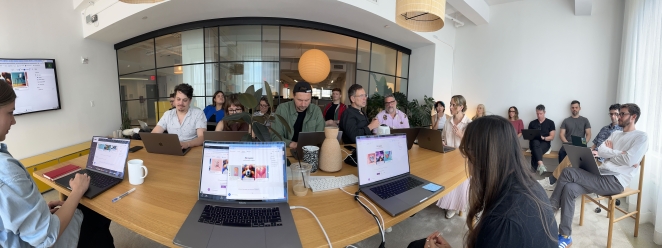
So, I think micro-adjustments will become the norm, with great brands relying less on radical, attention-grabbing changes in favor of building and maintaining trust with audiences.
What do you think sets apart truly exceptional creatives from the rest of the pack?
They surprise us. Anyone can learn how to do things the “right” way. Exceptional creatives take that a step further and do something totally logical that you never would have expected. Everything Everywhere All at Once is a great example of this. No one else could have made that film aside from The Daniels, but it’s also so satisfying on a basic storytelling level.
Exceptional creatives have a way of subverting expectations and rewarding us simultaneously. This is why I think AI isn’t a massive threat to writing; it’s good at meeting expectations, but not subverting them. Yet.
How do you think technology has influenced the creative industries and how have you adapted to these changes?
Every brand needs to be a media brand now, thanks to the proliferation of platforms and screens. So, the things I’ve learned working with ABC or FX, for example, now directly influence the work I do for brands like CBRE or Betterment. Every brand needs to understand how and why it creates content.
How do you prioritise self-care and maintain a healthy work-life balance?
The honest answer is, I don’t measure my value based on my career. I enjoy what I do, but it’s not my work; I’m always solving a challenge or problem for someone else, based on a set of parameters or criteria that has little or nothing to do with me.
This allows me to take ego out of it and just enjoy the process. If someone is critical of the work, they’re not critical of me. They’re critical of that particular solution, and I’ll work with the team to develop other answers.
How do you handle creative blocks or burnout?
I don’t experience writer’s block, but I do experience a sort of opposite: being overwhelmed by too many choices or ideas. When this happens, I try to tap into my intuition and pursue the ideas that feel most interesting. If I’m burned out, I’ll tell someone.
Never sit and simmer in that feeling, because it’s not productive. I’ll tell a producer or partner, and usually what happens is I’ll get some support and the problems are suddenly more manageable. It’s amazing to learn that everyone around you isn’t constantly reading your mind. And that stating how you’re feeling and what you need can be liberating.
Can you describe a moment when you had to think outside the box to overcome a creative challenge?
Cheesy answer incoming: I don’t think in terms of boxes, and that makes things way less stressful. There are only challenges and potential solutions. And the reality is there are often a million different ways to solve a problem. If I feel stuck, it’s often a good idea to shift perspectives and look at things from a different vantage point.
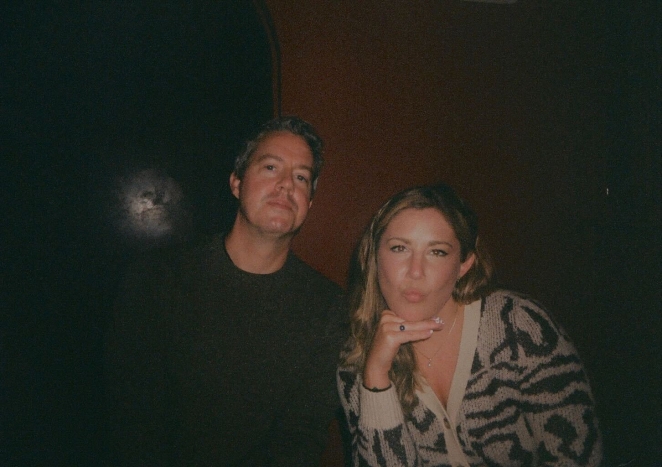
But to genuinely answer the question: I think it’s a good idea to ask yourself if you’re doing something because it’s the right way to do it, or if you’re doing it that way because that’s the way it’s always been done. Our industry, I’ve found, is built on conventions, and it can be more challenging to bang your head against them rather than challenging them. Doing something new and interesting is often the result of going beyond what’s worked in the past.
Do you have any websites, books or resources you would recommend?
I have to be honest that I don’t read many traditional industry sites or resources, but I’ve been fascinated by a few books in my own practice:
In Pursuit of Elegance: Why the Best Ideas Have Something Missing – by Matthew E May – This book is a thought provoking exploration of subtraction, mystery, and how many breakthroughs in culture leave something to our imaginations by design. May has inspired me to think rigorously about what is not included in my work, because encouraging the reader to fill in blanks can be a powerful way to invite active participation.
The Culting of Brands: Turn Your Customers into True Believers – by Douglas Atkin – This book has caught some flak for saying the quiet part out loud: Human beings inherently want to belong, and brands and organizations have leveraged this emotional need to create loyal consumers. Understanding the history and science behind this phenomenon, however, has allowed me to actually be a more empathetic creative, and Atkin’s work is only nefarious if one uses it nefariously.
George Saunders’ book on writing, A Swim in a Pond in the Rain, is a masterclass on what makes a compelling story, and everyone should read it. George is the best.
I’m endlessly influenced by Renata Adler, a journalist and film critic whose novel Speedboat changed the way I think about storytelling. She has a way of capturing seemingly random, disconnected moments and weaving them into an ongoing story about modern life – one in which we all get a chance to shine. This is a novel I recommend to pretty much everyone, and it’s often a revelation.
And a contemporary book that proudly and beautifully carries the torch of Adler is No One Is Talking About This by Patricia Lockwood. I’m an obsessive word collector. I keep a running list of interesting words and phrases I encounter in my Notes app – some recent examples: the evening wolves, mysterious sources of lift and illumination, falling down the stairs of your smile, three identical shades of blue, etc. – and Lockwood’s novel feels like ChatGPT having an existential crisis. It’s funny, moving, prescient, and proof that writing on your phone on the subway can be a viable career choice.
